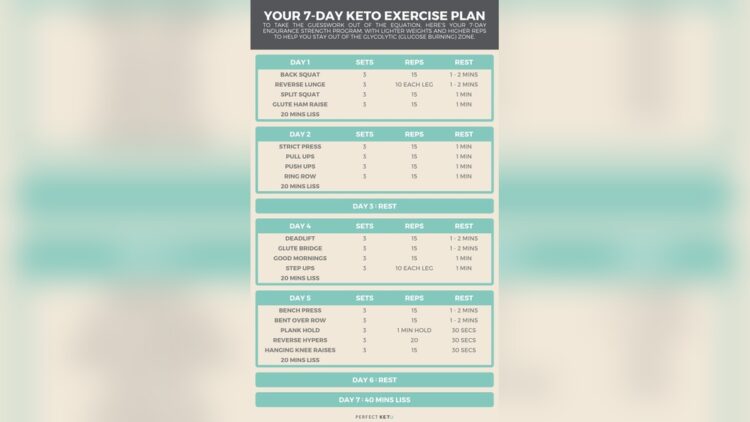A Weight Loss Nutritionist can help you lose weight by providing personalized nutrition plans and guidance based on your individual needs and goals. They can help you make healthier food choices, create meal plans, and develop sustainable habits to support long-term weight loss.
With their expertise and support, you can achieve your weight loss goals efficiently and effectively.
The Role Of A Weight Loss Nutritionist
A weight loss nutritionist plays a crucial role in helping individuals achieve their weight loss goals through proper nutrition and diet plans. These experts have the qualifications and expertise to provide personalized guidance and support, making them essential in a successful weight loss journey.
Qualifications And Expertise
A weight loss nutritionist possesses the knowledge and qualifications to guide individuals on their weight loss journey. They typically hold a Bachelor’s degree in Nutrition or a related field, ensuring they have a solid foundation in nutritional science. Additionally, many nutritionists pursue advanced certifications or participate in continuing education programs to stay up-to-date with the latest research and trends in the field. This ensures they can offer the most relevant and effective advice to their clients.
These professionals possess expertise in understanding the complexities of the human body’s nutritional needs. They understand how different foods and nutrients interact with the body and impact weight loss. Their expertise enables them to analyze an individual’s dietary habits, identify areas that need improvement, and make appropriate recommendations. By creating personalized nutrition plans, they help clients achieve a healthy weight in a sustainable manner.
Customized Meal Plans
One of the key roles of a weight loss nutritionist is to develop customized meal plans for their clients. These meal plans are tailored to the individual’s unique needs, taking into account factors such as their current weight, body composition, overall health, and specific weight loss goals. The nutritionist carefully considers the client’s dietary preferences and any underlying medical conditions to create a realistic and effective plan.
Customized meal plans often involve portion control, balanced macronutrient distribution, and the inclusion of whole, nutrient-dense foods. They aim to create a calorie deficit while still providing the necessary nutrients for optimal health. The nutritionist guides their clients in making healthier food choices, ensuring they fuel their bodies with the right combination of proteins, carbohydrates, and fats. These meal plans help individuals develop sustainable eating habits that support long-term weight loss success.
Regular consultations with the weight loss nutritionist allow for ongoing evaluation and adjustment of the meal plans. This ensures that the individual’s progress is monitored, any challenges or obstacles are addressed, and modifications are made as needed. The nutritionist acts as a trusted partner, providing guidance, motivation, and accountability throughout the weight loss journey.

Credit: www.amazon.com
Benefits Of Working With A Weight Loss Nutritionist
Working with a weight loss nutritionist can offer a multitude of benefits when it comes to achieving your health and fitness goals. Their professional guidance, accountability, and support can make a significant difference in your weight loss journey. Let’s delve into some of the key benefits you can expect by partnering with a weight loss nutritionist.
Professional Guidance
A weight loss nutritionist is a certified professional who possesses extensive knowledge and expertise in the field of nutrition. They can provide you with personalized guidance and advice tailored to your unique needs and goals. By analyzing your current eating habits, lifestyle, and medical history, a weight loss nutritionist can create a customized meal plan and dietary recommendations. Their guidance ensures that you are making informed choices and following a plan that is both effective and sustainable.
Accountability And Support
One of the major advantages of working with a weight loss nutritionist is the built-in accountability and support system they provide. They are there to motivate and guide you throughout your weight loss journey, acting as a source of encouragement and inspiration. A weight loss nutritionist will help you stay on track, monitor your progress, and adjust your plan if necessary. Their ongoing support and guidance can keep you motivated and accountable, enabling you to overcome any challenges or setbacks that may arise.
Understanding Nutrition For Weight Loss
Understanding Nutrition for Weight Loss is crucial for creating a sustainable and effective plan to reach your fitness goals. To achieve weight loss, it is essential to pay attention to the quality and quantity of the foods you consume. A weight loss nutritionist can provide valuable guidance in creating a nutrition plan tailored to your individual needs.
Balanced Macronutrients
A balanced intake of macronutrients, which include protein, carbohydrates, and fats, is essential for weight loss. Protein helps in muscle repair and growth, carbohydrates provide energy, and healthy fats aid in nutrient absorption. Consuming a well-balanced mix of these macronutrients supports overall health and assists in reaching weight loss goals.
Importance Of Micronutrients
In addition to macronutrients, micronutrients such as vitamins and minerals play a critical role in weight loss. These nutrients support various bodily functions and help in regulating metabolism. Vitamin B12, for instance, assists in energy production and vitamin D aids in calcium absorption. Ensuring an adequate intake of micronutrients is vital for overall health and can contribute to successful weight loss.
Key Strategies For Successful Weight Loss
When it comes to achieving successful weight loss, it’s important to have a well-rounded approach that focuses on a combination of factors. Along with regular exercise, a weight loss nutritionist can guide you towards making smart dietary choices that support your goals. Here are two key strategies that can help:
Meal Prepping And Planning
Meal prepping and planning is an effective strategy for weight loss that involves preparing your meals in advance and having them ready to go throughout the week. By dedicating a portion of your weekend to meal prepping, you can save time and ensure that you always have healthy, portion-controlled options available. Here’s how to make it work:
1. Choose a day: Set aside a specific day each week to plan and prepare your meals. This could be Sunday or any other day that works best for you.
2. Create a menu: Plan your meals for the coming week, taking into consideration your nutritional needs and weight loss goals. Aim for a balance of lean proteins, whole grains, fruits, vegetables, and healthy fats.
3. Make a grocery list: Based on your menu, create a comprehensive grocery list. Stick to the list when you go shopping to avoid impulse buys that may derail your progress.
4. Prep and portion: Once you’ve done your shopping, get to work prepping and portioning your meals. Cook large batches of proteins, grains, and vegetables, and divide them into individual containers. This way, you’ll have grab-and-go options readily available throughout the week.
5. Variety is key: Don’t be afraid to experiment with flavors and cuisines. Look for healthy recipes online or consult with a weight loss nutritionist to ensure your meals are satisfying and enjoyable.
Mindful Eating Habits
Mindful eating habits can have a significant impact on your weight loss journey. By paying attention to what and how you eat, you can develop a healthier relationship with food. Here are some key tips for practicing mindful eating habits:
1. Slow down: Take the time to savor each bite and eat at a slower pace. This allows your brain to register when you’re full, preventing overeating.
2. Portion control: Instead of mindlessly filling your plate, use smaller plates and bowls to help control portion sizes. This can trick your mind into thinking you’re consuming more food than you actually are.
3. Listen to your body: Tune in to your body’s hunger and fullness cues. Eat when you’re hungry and stop when you’re satisfied, rather than eating based on external cues or emotions.
4. Eliminate distractions: Avoid eating in front of the TV or computer, as this can lead to mindless snacking. Instead, create a calm and focused eating environment to fully enjoy and appreciate your meals.
5. Practice gratitude: Before digging in, take a moment to express gratitude for the food on your plate. This simple act can help shift your mindset to one of appreciation and mindfulness.
Navigating Challenges And Setbacks
When it comes to weight loss, challenges and setbacks are extremely common. However, with the guidance of a skilled weight loss nutritionist, you can navigate through these obstacles successfully. In this article, we will explore strategies and techniques to tackle challenges and setbacks on your weight loss journey.
Identifying Triggers
One of the first steps towards overcoming challenges and setbacks is identifying the triggers that lead to unhealthy eating habits. By understanding and recognizing these triggers, you can develop a personalized plan to avoid or better manage them. Here are some common triggers to be aware of:
- Stressful situations
- Emotional eating
- Food cravings
- Social pressure
- Lack of motivation
By acknowledging these triggers, you can proactively work towards finding alternative coping mechanisms and strategies that promote healthier habits.
Creating Sustainable Habits
Building sustainable habits is crucial for long-term weight loss success. Rather than relying on restrictive diets or temporary fixes, focus on incorporating healthy habits into your daily routine. Here are some tips to help you create sustainable habits:
- Set realistic goals
- Keep a food diary
- Choose nutrient-dense foods
- Practice portion control
- Incorporate physical activity
- Create a support system
By adopting these practices, you can gradually shift towards a healthier lifestyle that supports your weight loss goals.

Credit: m.facebook.com
Frequently Asked Questions Of Weight Loss Nutritionist
How Can A Weight Loss Nutritionist Help Me?
A weight loss nutritionist can help you achieve your weight loss goals by providing personalized meal plans, educating you on healthy eating habits, and tracking your progress. They will also provide guidance on portion control, nutrient intake, and offer support and motivation throughout your journey.
What Should I Expect In A Consultation With A Weight Loss Nutritionist?
In a consultation with a weight loss nutritionist, you can expect a thorough assessment of your current eating habits, lifestyle, and medical history. They will work with you to set realistic weight loss goals and develop a customized nutrition plan that suits your needs.
Regular follow-ups and adjustments will ensure your success.
Can A Weight Loss Nutritionist Help Me Overcome Emotional Eating?
Yes, a weight loss nutritionist can help you overcome emotional eating. They will help you identify triggers, develop coping strategies, and provide nutritional guidance to help you make healthier choices. By addressing the emotional aspect of eating, you can develop a healthier relationship with food and achieve long-term weight loss success.
Will A Weight Loss Nutritionist Recommend Any Specific Diet Or Restrict Certain Foods?
A weight loss nutritionist will create a personalized meal plan based on your individual needs and preferences. They may recommend a balanced diet that includes a variety of foods from all food groups. While certain foods might be limited or modified, the goal is to provide you with a sustainable and enjoyable eating plan that promotes healthy weight loss.
Conclusion
Incorporating professional guidance from a weight loss nutritionist can significantly improve your health journey. By understanding your nutritional needs and creating a personalized plan, you can achieve your weight loss goals. Make informed choices to experience positive transformations and long-lasting results.
Seek the support of a skilled nutritionist and embark on a healthier lifestyle.












Leave a Reply